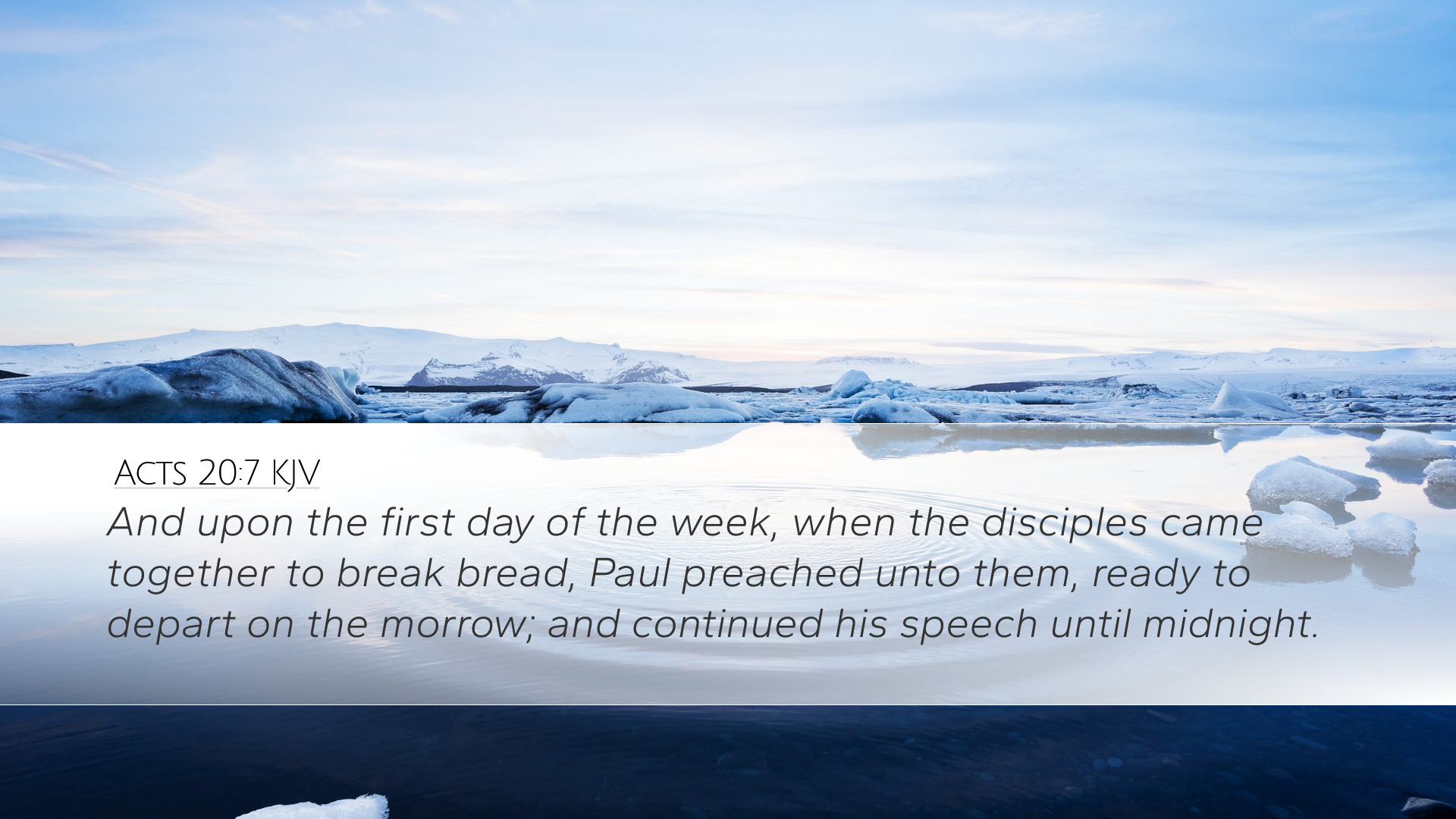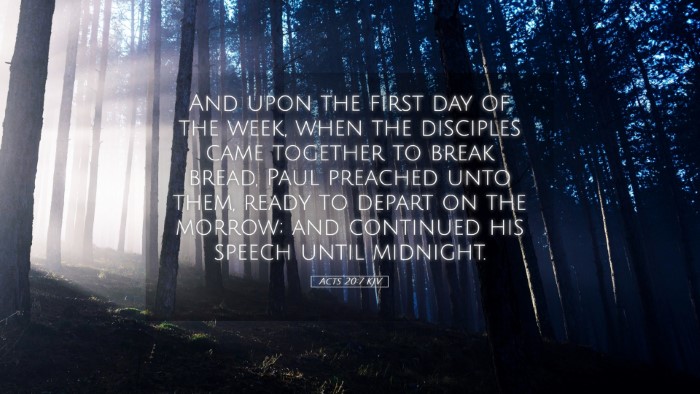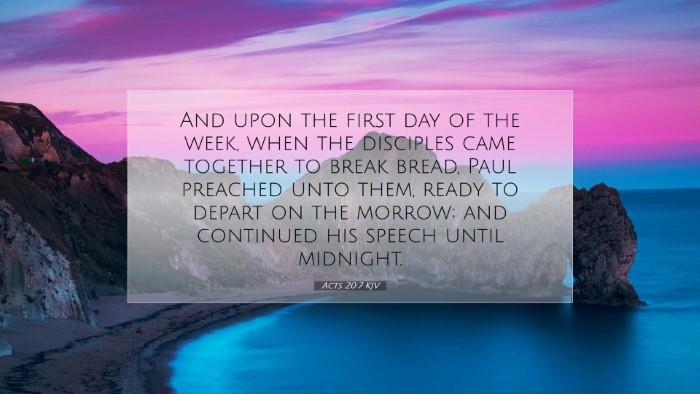Commentary on Acts 20:7
Introduction
Acts 20:7 states, “And upon the first day of the week, when the disciples came together to break bread, Paul preached unto them, ready to depart on the morrow; and continued his speech until midnight.” This verse captures a significant moment in the early Christian church, shedding light on the practices of worship and fellowship among the believers.
Historical Context
The early church was marked by communal gatherings, and this instance is illustrative of the regular observances in the Christian life. The first-day observance, which is Sunday, reflects an early transition from the Jewish Sabbath (Saturday) to a new Christian identity established by the resurrection of Jesus. The context allows for an exploration of early Christian worship, community life, and the preaching of the Word.
Insights from Public Domain Commentaries
Matthew Henry's Commentary
Matthew Henry emphasizes the significance of gathering on the first day of the week, stating that this practice highlights the believers' commitment to fellowship and worship. He notes:
- The breaking of bread symbolizes the closely knit community of believers and the importance of shared meals as a means of unity and remembrance of Christ’s sacrifice.
- Henry suggests that the timing of Paul’s preaching, extending until midnight, reveals not only the urgency of the message but also the hunger of the congregation for spiritual nourishment.
Albert Barnes' Notes on the Bible
Albert Barnes comments on the text, drawing attention to a few key aspects:
- He highlights that “the first day of the week” signifies a notable shift in worship from Jewish customs, establishing Sunday as a day of Christian assembly and renewal.
- Barnes also reflects on the importance of preaching in the early church, recognizing it as central to the life of believers: “Paul preached unto them…”, underscoring the responsibility of teachers to impart wisdom and nurture the faithful.
- Furthermore, he points out that the length of Paul’s sermon indicates the disciples’ deep desire to grow in understanding, showcasing the dedication of early Christians to spiritual development.
Adam Clarke's Commentary
Adam Clarke provides a thorough examination of the historical nuances of the verse:
- Clarke mentions the significance of "breaking bread" which may pertain not only to the Lord's Supper but also a broader practice of shared meals that foster community.
- He also discusses the implications of time; the meeting extending until midnight reflects the cultural context where gathering and teaching often occurred in the evening, allowing for work during the day.
- Clarke warns against the misinterpretation of the length of the message, suggesting it was not merely a test of patience but an essential component of serious discipleship, where the church sought understanding of the Scriptures.
Theological Reflections
This passage presents an opportunity for rich theological reflection:
- Significance of Community: The gathering signifies unity and shared beliefs among early Christians, presenting a model for modern church practices centered around communal worship.
- The Priority of the Word: Paul's extended teaching illustrates the value placed on the preaching of the Gospel. This carries implications for the contemporary church regarding the centrality of Scripture in teaching, growth, and discipleship.
- Worship and the Lord's Day: The selection of Sunday as a key day for assembly emphasizes the resurrection and new creation, establishing a rhythm of worship and remembrance in the life of the church.
- Sacred Hunger: The eager engagement of the disciples reflects a profound hunger for spiritual truth, calling pastors and theologians to assess how the modern church cultivates a desire for deep, transformative teaching.
Conclusion
Acts 20:7 stands as a vital piece of scripture documenting early Christian practice, providing significant insights for pastors, students, and theologians. The themes of community, the primacy of preaching, and the sacredness of the Lord's Day contribute to a deeper understanding of Christian worship and fellowship. As modern Christians reflect on this text, they are encouraged to foster a vibrant community centered around God's Word, much like the early church.


